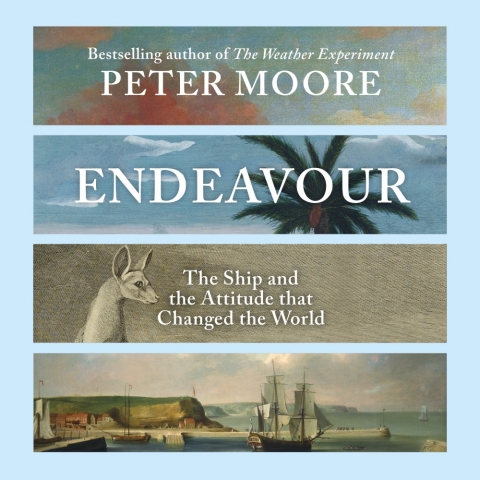Will ship which shaped the world return to the shores it discovered?

One of the most famous ships in the history of exploration might yet make a second journey across the globe — centuries after it sank, one of the authors coming to Buxton International Festival’s Book Weekend has said.
Historian Peter Moore’s highly-acclaimed history of Captain Cook’s Endeavour concentrates on how a work-a-day boat designed to take coal up and down the British coast changed the world by putting Australia and Polynesia into Europe’s sights.
Historians are 99 per cent sure that they have found its remains at the bottom of the sea near Rhode Island where it sank in the American War of Independence, sparking the question: who will claim its shattered timbers?
It could be Australia and New Zealand, the countries which exist because of its travels; Polynesia, where it is a symbol of the West’s “discovery” of a world which proved disastrous for the locals; or Whitby, where it was built, not to mention America, which under maritime law now owns it.
One idea might be to put the Endeavour on another global tour to be fair to all: “It should belong to everyone,” said Peter, who as a child on holiday in North Yorkshire could hardly escape the story of the area’s most famous son, Captain Cook.
But the stories of Cook’s voyages only touched on the Endeavour as a side issue, so he decided to put the little ship centre stage in the epic journey of scientists and empire builders which not only mapped half the world but also settled the question of how far the Earth was from the Sun through observations of Venus.
Whitby colliers were the unglamorous container ships of their day, but they were tough and had a shallow draught ideal for surveying uncharted coasts.
It was that practicality which made Peter examine the Endeavour as an historical symbol: “It’s almost the perfect Enlightenment object. The Endeavour was a commonplace thing, made of wood and grass and a very tiny bit of iron, but used for extraordinary things, like Newton’s prisms were.”
After centuries of living without any knowledge of each other, all the peoples of the human race finally came together thanks – or in some civilisations’ estimation, no thanks – to the Endeavour: “It’s the moment when the world was joined up again, and it’s just this little ship which did it.”
l Endeavour: the ship and the attitude that changed the world with Peter Moore, 4.30pm November 23, Pavilion Arts Centre, Buxton.
Buxton Book Weekend events are on November 23 and 24. Authors taking part include former Home Secretary Alan Johnson on the pop music which became the soundtrack to his life; Richard Van Emden on the final year of the First World War; Peter Moore discusses how Captain Cook’s ship The Endeavour changed the world; Kate Hubbard shows how Bess of Hardwick used four marriages to become one of the most powerful women in English history; Adrian Tinniswood on the domestic history of the royal household; and the host of Countdown, Nick Hewer, on a life which took him from the boardroom to TV stardom.
For more details, go to www.buxtonfestival.co.uk/whats-on/books
